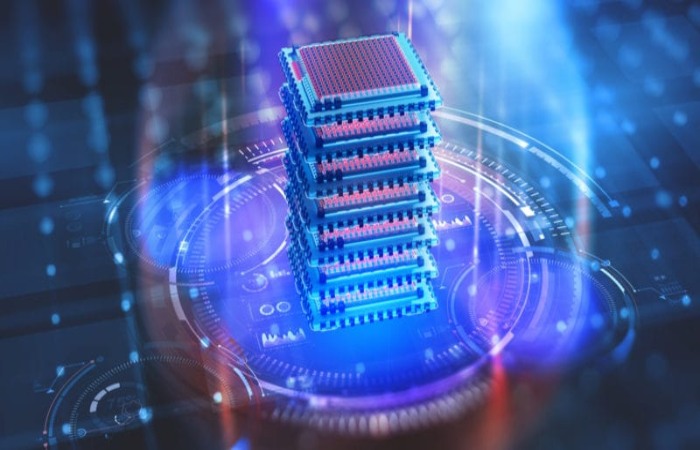Table of Contents
Introduction
Quantum Computing -When scientists want to harness molecules’ power during photosynthesis, they won’t be able to do so using regular old computers. They need to use quantum computers to measure and observe quantum systems at the molecular level and solve the conditional probability of events. Quantum computers can do billions of years’ worth of computing throughout a weekend — and untangle some of the world’s most complex problems.
What is Quantum Computing?

Quantum computing is a division of computer science that focuses on developing technologies based on the principles of quantum theory. It use the unique behavior of quantum physics to solve problems too complex for classical computing.
The development of quantum computers represents a leap forward in computing capability, with massive performance benefits for particular use cases. For example, it will likely excel in integer factorization and simulation tasks. It shows potential for use in pharmaceuticals, healthcare, manufacturing, cyber security, and finance businesses.
Why do we Need Quantum Computers?
When scientists and engineers face complex problems, they turn to supercomputers. These are substantial classical computers, often containing thousands of CPU and GPU cores skilled at running massive computations and advanced artificial intelligence. However, supercomputers are binary code-based machines relying on 20th-century transistor technology. They struggle to solve certain types of problems.
If a supercomputer breaks down, it is probably because the sizeable classical machine was asked to resolve a problem with a high degree of complexity. When classical computers fail, it is often because of complexity.
Complex problems are problems in which many variables interact in complex ways. Modeling the performance of individual atoms in a molecule is a complex problem because all the different electrons interact. Identifying delicate patterns of fraud in financial transactions or new physics in super colliders are also complex problems. We don’t know how to solve difficult problems with classical computers at any scale.
The real world runs on quantum physics. Computers that calculate quantum bits using quantum states should be our best tools for understanding this in many situations.
Uses of Quantum Computing
Quantum computing is widely used in finance, security, military affairs and intelligence, discovery and drug design, aerospace designing, utilities (nuclear fusion), machine learning, polymer design, artificial intelligence (AI), significant data discovery, and digital technology. I can contribute more. Production.
Quantum computers can be used to improve the secure exchange of information. Or they are improving radar and their ability to detect missiles and aircraft—another area where quantum computing will likely help keep water clean with environmental and chemical sensors.
Benefits of Quantum Computing
- Financial institutions can use quantum computing to design more efficient and effective investment portfolios for retail and institutional clients. They can focus on building better trading simulators and improving fraud detection.
- The healthcare industry can use quantum computing to develop new drugs and genetically targeted medical care. It could also power a more progressive DNA examination.
- For more robust online security, quantum computing can help design improved data encoding and ways to use light signals to detect system intruders.
- It is used to design more efficient, safer aircraft and traffic planning systems.
Features of Quantum Computing
There are two properties of quantum physics upon which quantum computing is based. They empower quantum computers to hold operations at much higher speeds and lower energy consumption than conventional computers.
Superposition
According to IBM, it’s remarkable what Qubit can do, not what it can do. A qubit holds the quantum information within it in a state of superposition. It refers to the combination of all possible configurations of a qubit. “Groups of qubits in superposition can form complex, multidimensional computational spaces. In these spaces, complex problems can be approach in new ways.”
Entanglement
Entanglement is an essential component of quantum computing power. Pairs of qubits can become entangled. It means that both qubits exist in the same state. In such a case, changing one class directly affects the other, which can be estimated.
Quantum algorithms are design to exploit this support to solve complex problems. While double the number of bits in a classical computer pair its processing power, adding qubits dramatically increases computing power and capacity.
Decoherence
Decoherence occurs when the quantum behavior of a qubit is reduced. A quantum state can be perturbed instantaneously by vibrations or temperature changes. It can reason qubits to fall out of superposition and introduce errors in computing. The Qubit must be protect from such interference by, for example, supercooled refrigerators, insulation, and vacuum chambers.
Conclusion
Quantum computing is diverse from classical computing. It uses qubits, which can be either 1 or 0 simultaneously. Classical computers use bits, which can be 1 or 0. It is much faster and more prevailing. It will likely use to solve various highly complex, meaningful tasks.
Although it has limitations, it is poised to use by many high-powered companies across multiple industries.
Related pages:
- [quantum computing]
- [what is quantum computing]
- [quantum computing explained]
- [quantum computing stocks]
- [how does quantum computing work]
- [quantum computing companies]
- [quantum computing news]
- [ibm quantum computing]
- [ibm quantum computing]
- [quantum computing jobs]
- [quantum computing applications]
- [what is meant by applied quantum computing]
- [quantum computing inc]


